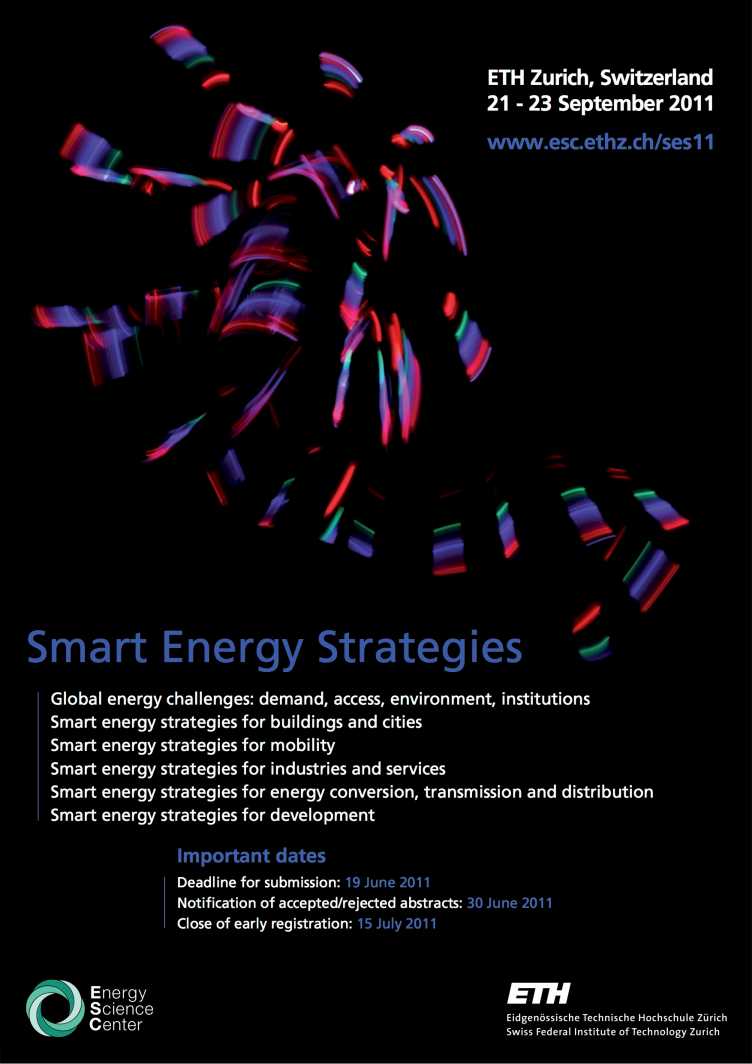Smart Energy Strategies Conference 2011
21 - 23 September 2011
ETH Zurich, Main Building HG, Auditorium Maximum F 30

The enormous challenge of creating a long-term sustainable energy system calls for the participation of engineers, natural scientists and social scientists. They can contribute both through their research and by helping to craft strategies that steer the future development of the system. A sustainable energy system cannot be developed by technical fixes alone; action is required on a broad front, including institutional and regulatory changes. However, research has a crucial role to play.
The conference focus was on smart strategies taking into account
- current technical and institutional systems, with their inertia and shortcomings;
- future energy-related challenges: energy security; the growing energy needs of the disadvantaged; and unintended consequences of energy systems, particularly climate change but also for example effects of large energy-related money flows;
- smart technical, institutional, and regulatory mechanisms for meeting these challenges.
Learn more about
DownloadStudent Sessions (PDF, 111 KB)vertical_align_bottom
Themes
- Global energy challenges. Which are the challenges the energy system faces in this century? How will energy demand, energy access, energy institutions and energy-environment interactions develop? What are the levers to steer the energy system in a sustainable direction?
- Smart energy strategies for buildings and cities. How can buildings and cities be planned and managed to meet the challenges? What are the strategies for building materials development, building design and technology (including building control) as well as city planning?
- Smart energy strategies for mobility. What strategies are promising in area of mobility? What role will multi-mode transport systems have and how important will electronic communication be in these systems. How does the unlimited demand for mobility tally with sustainability?
- Smart energy strategies for industries and services. Efficiency improvements are important not only in (energy-intensive) industries, but also in the service sector (green data centers etc.) and in households. What counts for the environment, however, is the quantity of energy resources used and the quantity of emission produced. What strategies will redirect industry and services from the efficiency to the quantity-reduction path?
- Smart energy strategies for energy conversion, transmission and distribution. Strategies to make the supply side of the energy system smarter are very much in fashion and greatly facilitated by the advances in electronic and power electronic devices, communication and control systems. Similar systems on the demand side allow, technically, a better integration of demand and supply side. In view of economic models favoring the separation of ownership and control over supply and demand, what is the smart strategy for the future development of the techno-social system?
- Smart energy strategies for development. Energy access is an important factor for the development of households, villages and countries. The rapid growth of developing and transition countries poses a problem for the availability of energy for all as well as for the global environment. What strategies are fair in this context, how can fair strategies ever be adopted by the global community?
